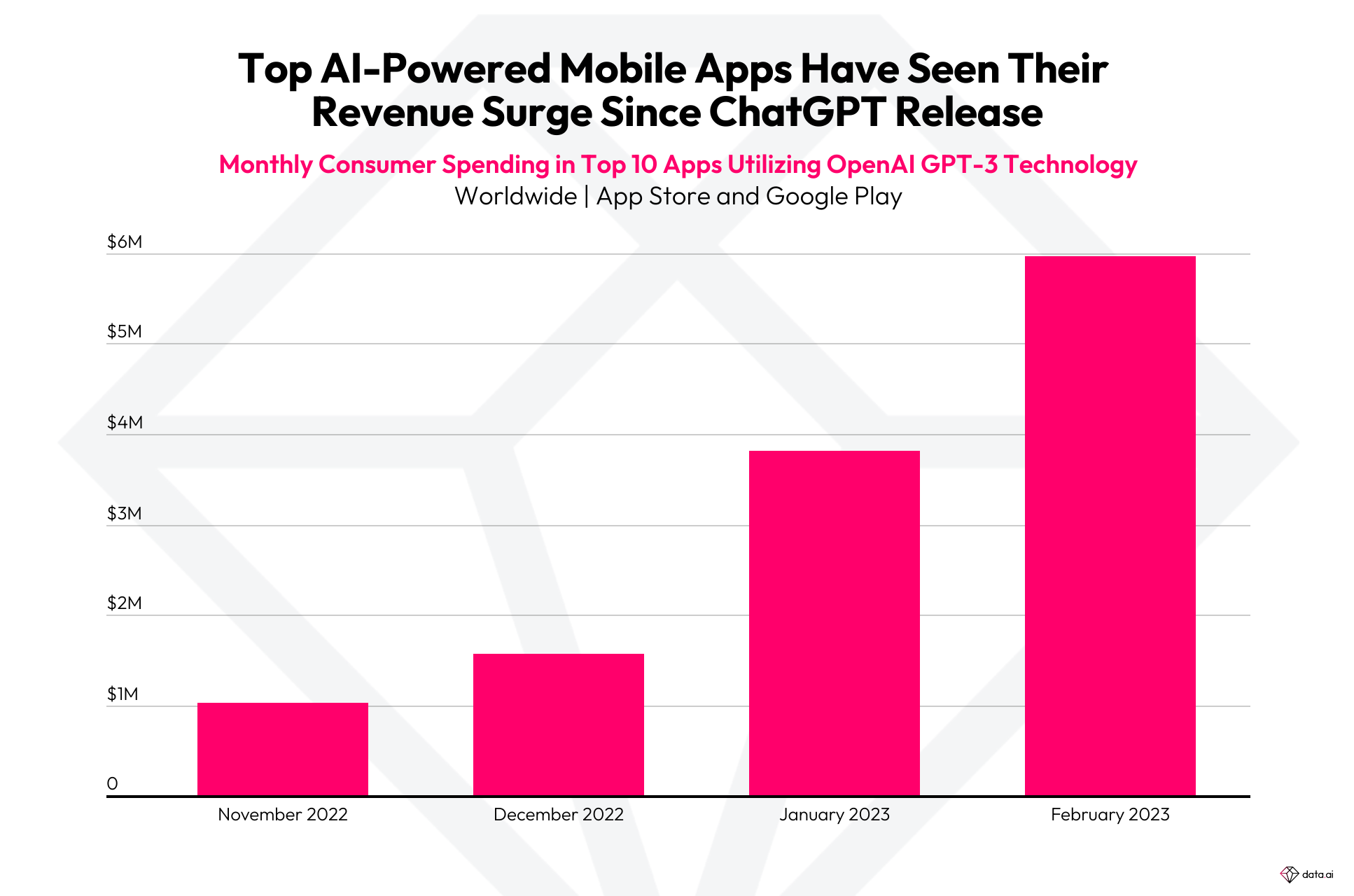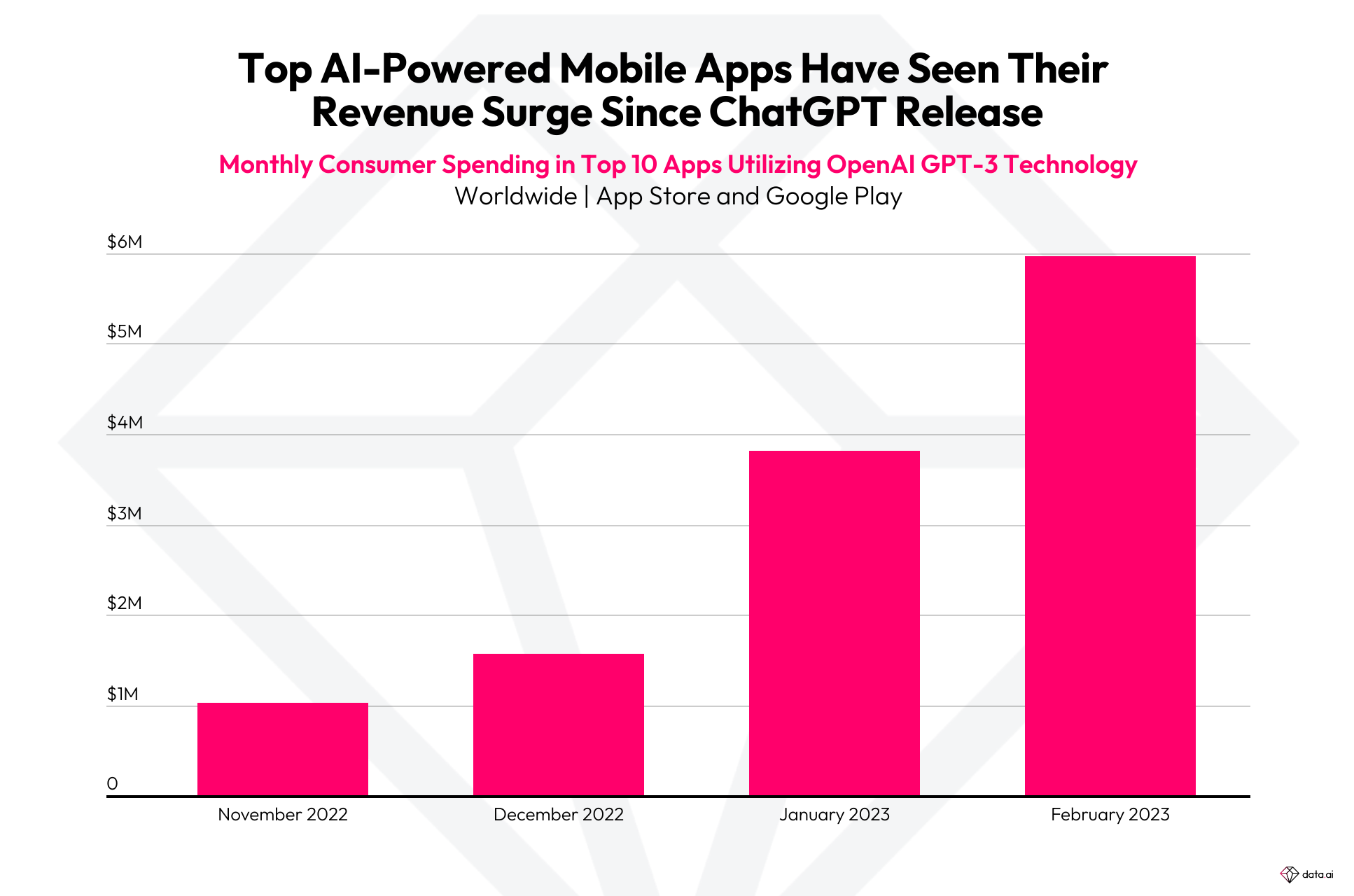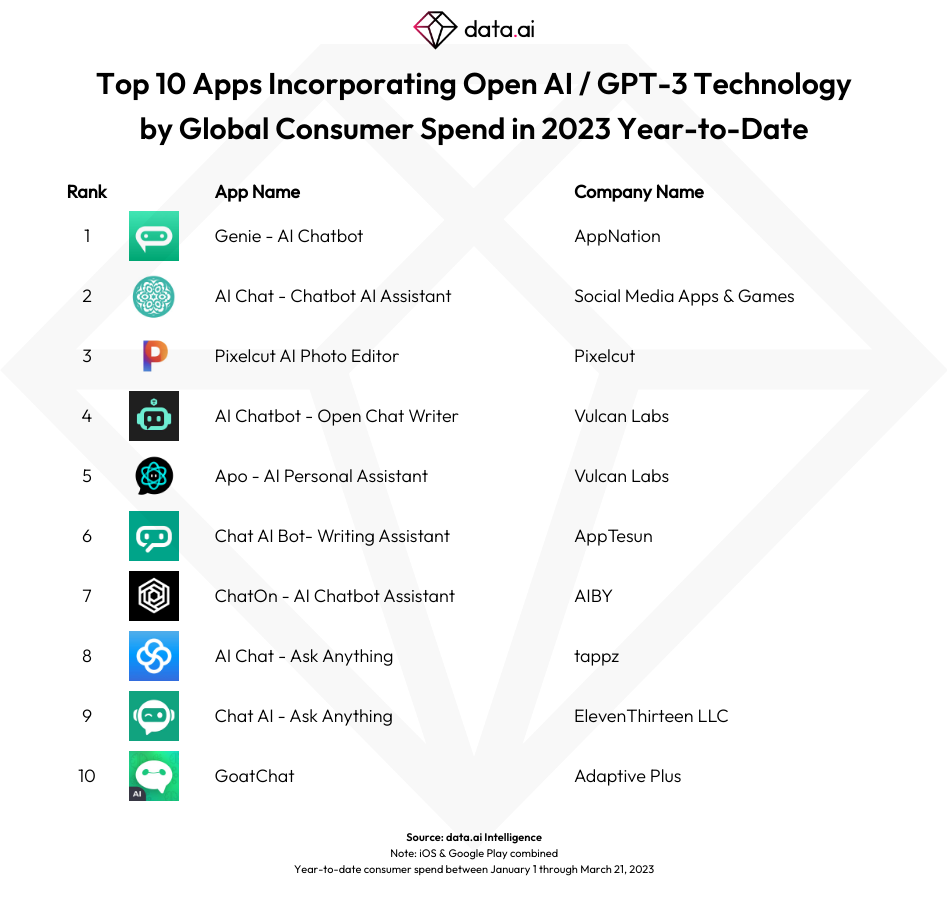
The top 10 AI mobile apps have already pulled in over $14 million this year
Consumer demand for AI chatbot experiences has been funneling millions of dollars into mobile apps advertising their association with ChatGPT or OpenAI technologies. According to a new analysis of the AI app ecosystem from analytics provider data.ai, consumers this year have now spent more than $14 million in the 10 highest-earning apps that advertise their use of ChatGPT or OpenAI technologies. And that demand is continuing to grow.
In February 2023, these 10 apps combined accounted for nearly $5.9 million in global consumer spending, the firm says. And within the first 20 days of March, the apps were averaging $232,000 in daily consumer spending, up 11% from the average of $210,000 in February.
What’s clear is that integrating “AI” features and references to things like ChatGPT or OpenAI has been helping drive demand, as the majority of the apps saw little consumer spend before their AI additions. For example, the same group of apps saw only $1.6 million in global consumer spending in December 2022, which grew 3.7x to reach February’s total. Last month also represented a 55% increase from the $3.8 million spent in January 2023, the analysis indicates.

Image Credits: data.ai
There was one exception to this trend: The app Pixelcut AI Photo Editor had been generating decent revenue before the January 2023 launch of its “magic writer” copywriter tool that uses GPT. In December 2022, the app had generated $817,000 in consumer spending. In February, its revenue had dropped slightly to $813,000, per data.ai’s estimates. Prior to January 1, 2023, Pixelcut had generated gross spending of $19.8 million globally, so it’s still doing well.
In addition to Pixelcut AI Photo Editor, data.ai’s analysis included the top-earning apps Genie – AI Chatbot; AI Chat – Chatbot AI Assistant; AI Chatbot – Open Chat Writer; Apo – AI Personal Assistant; Chat AI Bot – Writing Assistant; ChatOn – AI Chatbot Assistant; AI Chat – Ask Anything; Chat AI – Ask Anything; and GoatChat.
Of these, Genie has generated the most revenue this year, with $3.2 million in global consumer spending so far in 2023. AI Chat and Pixelcut were the No. 2 and No. 3 top apps, with $2.8 million and $2.2 million, respectively.

Image Credits: data.ai
What’s interesting about this group of apps is that, for the most part, none are trying to establish their own brand and identity to engage consumers. Instead, they’re simply keyword-stuffing their apps’ titles to match the search terms people are likely using when looking for an AI chatbot app of some sort. The consensus seems to be that words like “AI,” “Chat” or “Chatbot” and “Assistant” will help drive downloads — and by the looks of the apps’ revenue totals, they may be right.
The apps in this group also rank highly in App Store searches for the term “OpenAI” we found — an indication of how much ground OpenAI has ceded in the mobile app market by not having its own official mobile app available. Last month, Semafor reported the company was working on a mobile ChatGPT app, which would allow mobile users to access the AI from a dedicated experience instead of the existing web interface. However, the company declined to comment on the report, so it’s unclear what the project’s current status may be.
Apple, playing the role of middleman, has also struggled to deal with the influx of AI-powered apps. In January, both the App Store and Google Play became flooded with dubious ChatGPT apps that were claiming to be associated with OpenAI in order to charge hefty subscription prices for accessing ChatGPT — a service that’s been free via the web. One notable app, “ChatGPT Chat GPT AI With GPT-3” (talk about keyword stuffing!) even made it to the top of the App Store before being removed by Apple.
The company has since battened down the hatches. For instance, one app developer, Hidde van der Ploeg, had created an app that lets you engage with ChatGPT from your Apple Watch but was rejected from the App Store over its use of “GPT” in the app’s original name, WatchGPT. Instead of waiting for an appeal, he rebranded the app “Petey” and it was approved.

